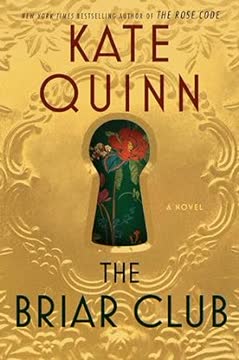Plot Summary
Orphaned and Bound Out
At five, Deborah Samson is left motherless and fatherless, scattered from her siblings and sent as a servant to harsh households. Her mother, proud of their Pilgrim heritage, can offer little but stories and the ability to read. Deborah's sense of powerlessness and longing for autonomy is forged in these years of servitude, fueling a rebellious spirit. She is bound out to the Thomas family, a bustling, loving but demanding household, where she finds both belonging and the seeds of her future defiance. The pain of being "bound out" marks her deeply, instilling a hunger for freedom and self-determination that will define her life.
The Thomas Family's Influence
The Thomas household, with its ten boisterous sons and kind matriarch, becomes Deborah's world. She is valued for her work and intellect, learning to shoot, weave, and debate with the boys. Jeremiah, the youngest, becomes her "twin," and the family's warmth offers her a sense of home. Yet, she is always aware of her outsider status and the limitations placed on her as a girl. The Thomas boys radicalize her, teaching her skills and stoking her competitive fire, while Reverend Conant, a surrogate father, nurtures her mind and faith. These years are a crucible, shaping her into someone both fiercely capable and quietly yearning for more.
Letters Across Distance
Deborah's world expands through letters with Elizabeth, her mentor and friend, who encourages her intellect and ambition. Their exchanges become a lifeline, exposing Deborah to new ideas, literature, and the wider world. Elizabeth's wisdom and warmth help Deborah navigate adolescence, while the act of writing hones her voice and sense of self. Through these letters, Deborah explores her dreams, frustrations, and the constraints of her gender, finding solace and inspiration in Elizabeth's encouragement. The correspondence becomes a record of her growth and a testament to the power of female friendship across distance and circumstance.
Restless Dreams of Freedom
Deborah's restlessness intensifies as she approaches adulthood. She dreams of running, exploring, and breaking free from the roles prescribed to her. The political unrest of the colonies mirrors her internal rebellion, and she is drawn to the revolutionary fervor around her. The limitations of her sex chafe, and she longs for the opportunities afforded to men—education, travel, and the right to choose her own path. Her dreams are haunted by ancestral stories of loss and hope, fueling her desire to become more than her circumstances allow. The call to action grows louder, setting the stage for her transformation.
War's First Call
The outbreak of war shatters the Thomas family, as the brothers enlist and Deborah is left behind, aching to join them. The realities of conflict—loss, fear, and the allure of heroism—permeate her life. She witnesses the cost of revolution firsthand, as news of battles and deaths reach home. The war becomes both a backdrop and a catalyst, intensifying her longing for agency. Deborah's skills and resolve deepen, but so does her sense of exclusion. The war is not just a national struggle; it is her personal crucible, pushing her toward a decision that will change everything.
Woman in Disguise
With her bond ended and her options limited, Deborah makes a radical choice: she will become a soldier. Cutting her hair and binding her breasts, she adopts the identity of "Robert Shurtliff." Her transformation is both physical and psychological, as she navigates the dangers of discovery and the thrill of newfound autonomy. The act of passing as a man is fraught with risk, but it offers her the chance to live on her own terms. Deborah's courage and adaptability are tested as she enlists, determined to prove herself in a world that denies her place.
The Soldier Named Shurtliff
As Private Shurtliff, Deborah endures the grueling life of a Continental soldier—marches, hunger, camaraderie, and the ever-present threat of violence. She excels in drills and earns the respect of her peers, all while guarding her secret. The bonds she forms with fellow soldiers are deep and complex, marked by shared hardship and mutual reliance. The realities of war—death, fear, and fleeting moments of joy—shape her, but so does the constant tension of living a double life. Her resilience and ingenuity are her armor, but the cost of concealment grows heavier with each passing day.
Brotherhood and Loss
Deborah's surrogate brothers fall one by one to war, and the Thomas family is decimated. The losses are personal and profound, echoing the collective suffering of a nation. The camaraderie of the ranks is both a comfort and a reminder of what she risks by remaining hidden. The deaths of friends and the trauma of battle leave scars, both visible and unseen. Deborah's grief is compounded by the isolation of her secret, and she is forced to confront the limits of endurance and the meaning of sacrifice. The war's cost is measured in bodies and broken hearts.
The General's Aide
Deborah's competence and discretion earn her a position as aide-de-camp to General John Paterson. The intimacy of their working relationship brings new challenges and unexpected feelings. Paterson, a man of integrity and quiet strength, becomes both mentor and confidant. Their bond deepens through shared trials and mutual respect, blurring the lines between duty and desire. Deborah's secret becomes harder to keep, as the risks of exposure grow alongside her affection for the general. The tension between her public persona and private self intensifies, setting the stage for revelation and transformation.
Secrets and Survival
Deborah's identity is ultimately discovered when she falls gravely ill. The revelation is both a crisis and a release, forcing her to confront the consequences of her choices. The reactions of those around her—shock, betrayal, compassion—mirror the complexities of her journey. The general's response is pivotal, as love and loyalty are tested against duty and reputation. Deborah's survival depends not just on her physical strength, but on the willingness of others to see and accept her true self. The aftermath is a reckoning, as she must decide what kind of life she will claim in the war's wake.
Love in the Highlands
In the aftermath of exposure, Deborah and John Paterson choose each other, marrying in secret and navigating the challenges of a world not ready for their union. Their love is hard-won, built on mutual respect, shared suffering, and the courage to defy convention. Deborah must learn to inhabit her womanhood anew, balancing the roles of wife, mother, and former soldier. The transition is bittersweet, marked by longing for lost freedom and gratitude for hard-earned happiness. Together, they create a life that honors both their pasts and their hopes for the future.
Unmasking and Aftermath
Deborah's story becomes both a source of pride and controversy. She faces skepticism, gossip, and the challenge of being both celebrated and marginalized. The struggle for recognition—both as a veteran and as a woman—continues, as she petitions for a pension and tells her story publicly. The legacy of her service is complicated, shaped by the limitations of her time and the prejudices she confronts. Yet, she persists, determined to claim her place in history and to honor the sacrifices of those who cannot speak for themselves.
Becoming Deborah Again
Deborah's journey comes full circle as she reconciles her identities—soldier, wife, mother, and storyteller. She returns to the places and people of her past, seeking forgiveness, understanding, and closure. The act of telling her story becomes an act of healing, both for herself and for those who hear it. She honors the memory of her lost brothers, her mother, and her mentors, weaving their stories into her own. In embracing her complexity, she becomes a symbol of resilience and hope, inspiring future generations to claim their own voices.
The Price of Revolution
The revolution's aftermath is marked by both triumph and disillusionment. Deborah witnesses the slow progress of freedom and equality, recognizing that the ideals for which she fought remain unfinished. The cost of change is measured in lives lost and dreams deferred, but also in the quiet victories of survival and self-assertion. Deborah's story is a testament to the ongoing struggle for justice and recognition, a reminder that every cause has a cost and that true change is both hard-won and incomplete. Her legacy endures in the lives she touched and the barriers she broke.
Homecoming and Legacy
Deborah and John create a blended family, raising children and grandchildren in a home shaped by love, loss, and resilience. The echoes of the past linger, but so do the lessons learned. Deborah's relationship with John's daughters, her own children, and the wider community is marked by both challenge and acceptance. She continues to advocate for recognition, both for herself and for other women whose contributions have been overlooked. The act of coming home is both literal and symbolic, a return to self and a claim to belonging.
Telling Her Own Story
In her later years, Deborah takes to the stage, sharing her story with audiences across the country. Her public lectures are both a celebration and a challenge, inviting others to reconsider the roles of women in history and the meaning of courage. She becomes a symbol of possibility, her life a testament to the power of self-determination and the importance of telling one's own story. The act of speaking out is both a personal triumph and a gift to future generations, ensuring that her legacy—and the legacy of countless unsung women—will not be forgotten.
Characters
Deborah Samson / Robert Shurtliff
Deborah is a woman forged by hardship, loss, and longing for autonomy. Orphaned young and bound out as a servant, she develops a fierce independence and a hunger for freedom. Her intellect and physical prowess set her apart, but so does her refusal to accept the limitations of her gender. Disguising herself as Robert Shurtliff, she becomes a soldier, enduring the rigors of war and the constant threat of exposure. Her journey is one of self-discovery, as she navigates love, loss, and the complexities of identity. Deborah's psychological arc is marked by a relentless drive to prove herself, a deep capacity for love and loyalty, and a willingness to risk everything for a life of her own choosing. Her transformation from orphaned servant to celebrated veteran and storyteller is both hard-won and deeply moving.
General John Paterson
John Paterson is a man of integrity, intellect, and deep feeling. A widower and military leader, he is both mentor and eventual lover to Deborah. His sense of duty is matched by a capacity for empathy and a willingness to challenge convention. Paterson's relationship with Deborah evolves from professional respect to profound love, marked by mutual admiration and shared suffering. He is torn between public responsibility and private desire, struggling to reconcile his feelings with the expectations of his time. His acceptance of Deborah's true self is both a personal risk and a testament to his character. Paterson's journey is one of growth, as he learns to balance duty with vulnerability and to embrace a love that defies societal norms.
Elizabeth Paterson
Elizabeth is Deborah's correspondent, confidante, and role model. Through their letters, she offers guidance, encouragement, and a window into a wider world. Elizabeth's own life is marked by strength and adaptability, and her influence on Deborah is profound. She embodies the power of female friendship and the importance of intellectual and emotional support. Her death is a devastating loss for Deborah, but her legacy endures in the lessons she imparts and the hope she inspires. Elizabeth represents the unseen labor and quiet heroism of women in history.
Reverend Sylvanus Conant
Reverend Conant is a rare male ally in Deborah's early life, recognizing her intellect and worth. He provides her with books, encouragement, and a sense of belonging. His faith is inclusive and empowering, and he nurtures Deborah's spiritual and intellectual growth. His death is a turning point, leaving Deborah more alone but also more determined. Conant's belief in Deborah's potential is a crucial foundation for her later courage and ambition.
The Thomas Family
The Thomases, especially the ten sons and their mother, provide Deborah with both belonging and challenge. Jeremiah, the youngest, becomes her "twin" and closest companion, while the older boys push her to excel and compete. The family's losses in the war are deeply felt, and their influence on Deborah is lasting. The Thomases represent both the possibilities and limitations of found family, shaping Deborah's sense of self and her understanding of love, loyalty, and sacrifice.
Phineas Thomas
Phineas is both rival and ally to Deborah, their relationship marked by playful antagonism and deep connection. He is one of the few who suspects her secret, and his own struggles with war, loss, and identity mirror Deborah's. Phineas's fate is a poignant reminder of the costs of war and the complexities of friendship. His death is a source of enduring grief and guilt for Deborah, underscoring the novel's themes of loss and survival.
Agrippa Hull
Agrippa is a free Black man and aide to Colonel Kosciuszko, providing both comic relief and profound wisdom. His friendship with Deborah (as "Bonny") is marked by mutual respect and playful banter. Agrippa's perspective on freedom, identity, and acceptance offers a counterpoint to Deborah's struggles, highlighting the intersectionality of oppression and the importance of solidarity. He is one of the few who knows Deborah's secret and remains steadfastly supportive.
Mrs. Thomas
As the matriarch of the Thomas family, Mrs. Thomas is both nurturing and demanding. She values Deborah's contributions and treats her with kindness, but is also bound by the expectations of her time. Her grief over the loss of her sons is profound, and her relationship with Deborah is a source of both comfort and complexity. Mrs. Thomas represents the often-unseen sacrifices of women during war.
Deborah's Mother
Deborah's mother is a figure defined by loss, pride in her heritage, and emotional reserve. Her inability to provide for her children or to connect deeply with Deborah is a source of pain and longing. The legacy of her pride and her survival shapes Deborah's own sense of self, even as their relationship remains fraught. Her death prompts reflection and reconciliation for Deborah.
Colonel Ebenezer Sproat
Sproat is a figure of authority and common sense, recognizing Deborah's abilities and, eventually, her secret. His willingness to keep her confidence and judge her by her actions rather than her gender is a rare gift. Sproat's presence underscores the importance of allies and the possibility of acceptance, even in unlikely places.
Plot Devices
Disguise and Dual Identity
The central device of Deborah's story is her adoption of a male identity to access freedom, agency, and purpose. The tension between her public persona (Robert Shurtliff) and private self (Deborah Samson) drives the narrative, creating suspense and emotional complexity. The disguise allows for exploration of gender roles, societal expectations, and the costs of living a double life. The eventual unmasking is both a crisis and a catharsis, forcing characters and readers to confront the realities of identity, acceptance, and the price of authenticity.
Epistolary Structure and Letters
The use of letters—especially between Deborah and Elizabeth—serves as both a plot device and a means of character development. The correspondence provides insight into Deborah's inner life, her growth, and her relationships. Letters also function as a bridge between past and present, public and private, and as a record of women's voices often absent from official histories. The epistolary device allows for reflection, foreshadowing, and the layering of multiple perspectives.
Historical Backdrop and Real Events
The novel's structure is anchored in the chronology of the American Revolution, with real battles, political debates, and historical figures shaping the characters' lives. The war serves as both a literal and metaphorical battleground for Deborah's quest for autonomy. The use of real events and figures (e.g., General Paterson, Agrippa Hull, Paul Revere) grounds the story in history, while also highlighting the gaps and silences in the record—especially regarding women's contributions.
Foreshadowing and Recurring Motifs
Recurring motifs—such as Deborah's dreams of flying or drowning, her love of running, and the ever-present threat of the sea—foreshadow her struggles and desires. These motifs symbolize both the longing for freedom and the fear of being overwhelmed or erased. The motif of letters and storytelling also foreshadows Deborah's eventual decision to claim her narrative publicly, ensuring her legacy endures.
Narrative Framing and Retrospective Voice
The story is framed as a retrospective account, with Deborah writing her story for future generations. This structure allows for reflection, analysis, and the weaving together of personal and historical threads. The narrative voice is both immediate and contemplative, inviting readers to consider the meaning of the past and the lessons it holds for the present.
Analysis
A Girl Called Samson is a powerful meditation on identity, agency, and the costs of both revolution and self-actualization. Through Deborah Samson's journey—from orphaned servant to soldier, wife, and public speaker—the novel interrogates the boundaries of gender, the meaning of courage, and the ways in which history remembers (or forgets) its heroines. The use of disguise is not merely a plot device but a lens through which to examine the limitations and possibilities of womanhood in a time of upheaval. The epistolary structure foregrounds the importance of women's voices and the act of storytelling as both survival and resistance. The novel's modern resonance lies in its exploration of intersectionality, the unfinished work of equality, and the necessity of claiming one's own narrative. Deborah's story is both singular and universal—a testament to the resilience of those who refuse to be defined by circumstance, and a reminder that true freedom is as much about self-acceptance as it is about societal change. The emotional arc, from longing and loss to love and legacy, invites readers to reflect on their own definitions of courage, belonging, and the stories we choose to tell.
Last updated:
Review Summary
A Girl Called Samson is praised for its compelling storytelling, vivid historical detail, and powerful portrayal of Deborah Samson, a woman who disguised herself as a man to fight in the Revolutionary War. Readers appreciate the blend of fact and fiction, the exploration of themes like freedom and identity, and the unexpected romance. While some criticize the fictional elements added to real historical figures' lives, most find the book engaging and inspiring. Harmon's writing style and ability to bring history to life are frequently commended.











